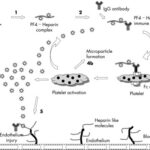Landau-Kleffner Syndrome (LKS) is recognized as a rare epileptic disorder that primarily affects children, often manifesting with symptoms that can be mistaken for autism. This condition is characterized by aphasia, or language loss, typically emerging in children between the ages of 3 and 7, a period crucial for language development. It’s observed more frequently in males compared to females and, notably, its symptoms can sometimes lead to a misdiagnosis of autism spectrum disorder. Initially, children with LKS exhibit typical development, possessing normal language skills and vocabulary, which makes the subsequent language regression particularly concerning for parents and clinicians alike.
The hallmark of LKS is the progressive or sudden loss of language abilities. Children first lose the capacity to understand language (receptive aphasia) and subsequently struggle to express themselves verbally (expressive aphasia). This language deterioration can occur over weeks or months, or in some cases, quite abruptly. Diagnostically, LKS is associated with abnormal electroencephalogram (EEG) patterns, particularly during sleep, in the temporal lobe and temporo-parieto-occipital regions of the brain. An EEG examination during sleep is therefore critical in diagnosing this syndrome. Seizure activity is also a factor, with approximately 70% of individuals with LKS experiencing epilepsy. These seizures are generally infrequent and can manifest with or without convulsions.
A key symptom that can contribute to the diagnostic confusion with autism is the impaired response to sounds. Children with LKS may appear not to hear, leading to initial suspicions of hearing loss. Furthermore, several behavioral characteristics observed in LKS overlap with those of autism. These autism-like traits include reduced sensitivity to pain, episodes of aggression, limited eye contact, a strong preference for routine and sameness, and disturbances in sleep patterns. It’s these overlapping symptoms that underscore why Landau-Kleffner Syndrome is often considered in differential diagnosis when evaluating children for autism spectrum disorder.
The exact cause of Landau-Kleffner Syndrome remains unknown, although research suggests potential links to immune system dysfunction, viral exposures, and brain trauma. The prognosis for individuals with LKS varies, but is generally more favorable when the onset of the syndrome occurs after the age of 6 and when speech therapy interventions are initiated early in the course of the disorder. Effective management of LKS often involves a combination of treatments. Anticonvulsant medications are frequently used to control seizure activity, and corticosteroids have shown benefit in some cases. In more severe situations, surgical interventions to sever the brain pathways responsible for abnormal electrical activity may also be considered.
For further in-depth information and resources, the Epilepsy Foundation provides valuable support and detailed explanations of Landau-Kleffner Syndrome.
